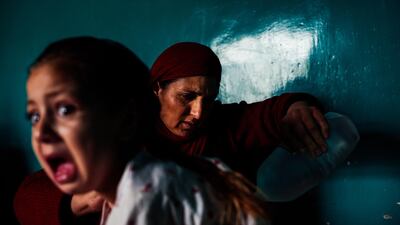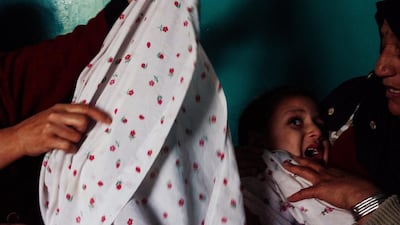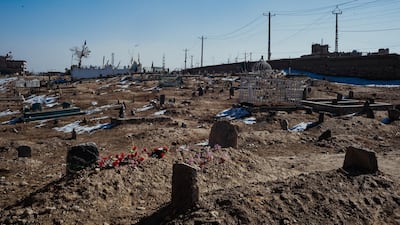The sun had already set behind the towering blast walls of the Kabul compound when a small Mazda truck pulled up at the razor wire-topped gate.
Down the street, 25-year-old Tooryalai walked briskly in the chilly January evening on his way to the naan shop in the neighbourhood of Qabil Bai, where he would buy a pile of piping hot flatbread to take home to his family after selling vegetables all day from a cart in the neighbourhood. Tooryalai liked to talk with his friends after work, but he always made sure he was home by dark.
His family didn’t live inside Green Village, a secure compound on the outskirts of the Afghan capital inhabited by foreigners and international organisations. Like the other day labourers and farmers who tilled fields in the nearby foothills, Tooryalai’s family lived in one of the mostly single-story adobe homes that wrapped around the concrete T walls of the compound’s perimeter.
Ajabi Gul’s house was typical in the neighbourhood. A neighbour of Tooryalai, he was settling down by the window of his two-room home after a day of working on one of the farms nearby with a kettle of hot tea and his nine-year-old niece Alia on his lap.
It was a typical evening as the family gathered around their gas heater that doubled as their stove for dinner at the end of a short winter’s working day, a scene being repeated in districts across Kabul. What happened next was all too typical for the Afghan capital.
Packed inside the Mazda pickup truck were enough explosives to be heard across Kabul when they detonated.
Seventeen years after the United States invaded Afghanistan to oust the Taliban government, ordinary Afghans continue to die at an alarming rate. According to local news outlet Pajhwok, nearly 1,000 Afghans died violently in January. Shocking though the statistics are, what they obscure are the individual tales of tragedy and heartache attached to every one of those deaths.
The blast at the compound blew out windows across the neighbourhood. Nearly 100 metres from the explosion, Tooryalai was knocked unconscious. Three friends walking alongside him were killed instantly.
Ajabi Gul’s tea kettle was blown from the windowsill onto Alia, the scalding tea burning her from her shoulders to her knees.
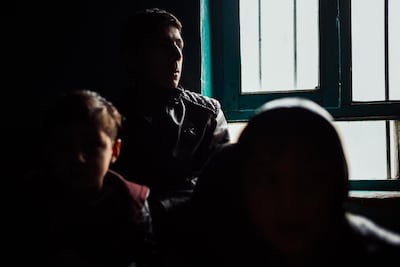
The January 14 blast was the first major security incident to hit Kabul in 2019. It would be followed in succession by a series of smaller separate attacks around the country. Amid a backdrop of ongoing peace negotiations, a resurgent Taliban has continued to attack government institutions, security installations and areas where foreigners are known to congregate. Civilians often bear the brunt.
In the frantic moments after the blast, as the dust settled and first responders rushed to the scene, Tooryalai’s family dialled his phone but could not reach him. The naan shop where Tooryalai bought bread was heavily damaged, the windows blown out and the façade buckled. Tooryalai was nowhere to be found.
It wasn't until hours later that his family found him swaddled in bandages, and in critical condition at the nearby hospital where he had been rushed after locals pulled him unconscious among the wreckage of the bread shop.
In the children’s ward of a hospital nearby, Alia was receiving treatment for her burns.
After some hours, Tooryalai regained consciousness. Speaking through an oxygen mask in the intensive care ward, he whispered: “I am getting better.”
He died a few days later, lifting the death toll from the attack to 10 killed. The blast wounded 113 more people.
His death was not the first time the war has visited the family. Tooryalai’s brother Baryalai once lost fingers and toes in a mine explosion. Another uncle died in another explosion five years ago in Kabul. In the wrong place at the wrong time, is how the family explains these incidents.
“Each explosion damages us, our houses are damaged from the blast, one day we will be under this house,” Baryalai said, while pointing out cracks in the foundation of his home.
The family, says Tooryalai’s uncle Noorallen, is dying for peace. “If there is real peace we will be happy,” he added. “If the Taliban are Afghan they are our brothers.”
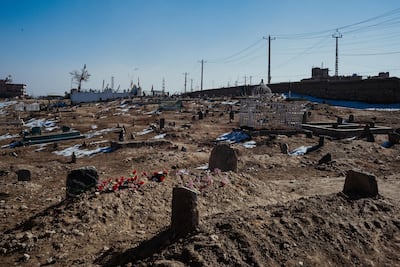
Alia was discharged from the hospital a week later.
Her seven siblings are asked to leave the room in her home when her bandages are changed. Her mother, Rabia, does not want to frighten them. It’s the same room where Alia was wounded by the explosion.
Her father, Alla Gul, has not worked in weeks. He’s borrowed money to care for her and buy medicine. Some of the other farmers have donated money but most cannot afford to help.
The nurses in the ward taught Rabia how to change the dressings and clean her wounds. The process is painful. The bandages stick to her skin and must be pulled off slowly. Alia’s mother and grandmother try to soothe her during the process as she screams, kicks and thrashes. “No! Oh God,” she wails.
In the weeks following the explosion the shops that were destroyed had been repaired. There was still evidence of the explosion all around Qabil Bai. Shards of glass on the ground, cracked façades and a handful of people walking around with bandages on their arms and legs.
In Alia’s home, the window that shattered has been replaced by a plastic sheet, as the family cannot afford to buy a new pane.
